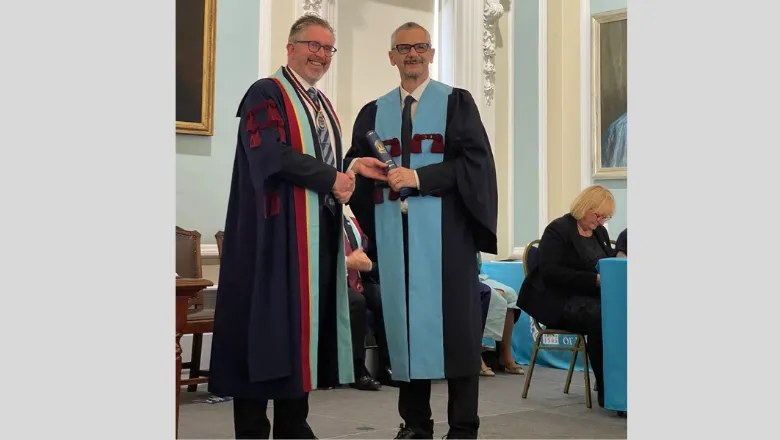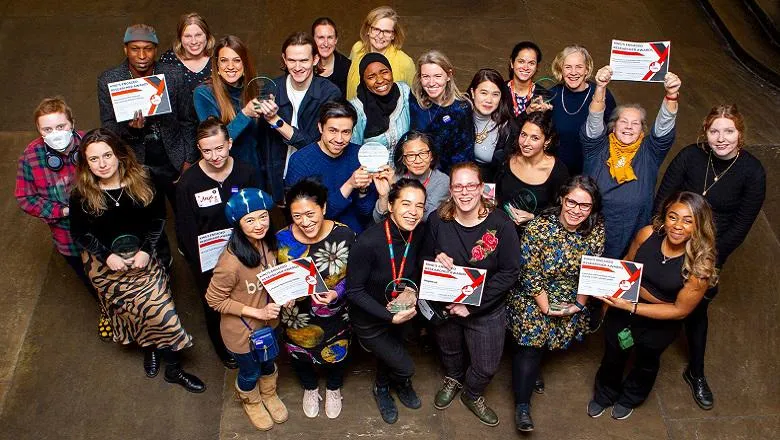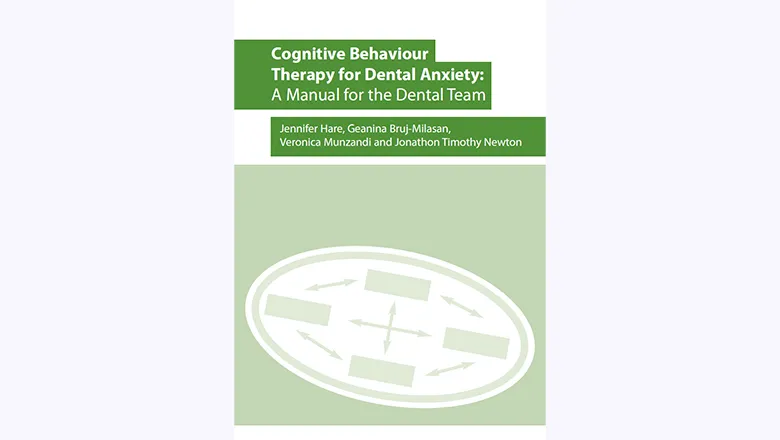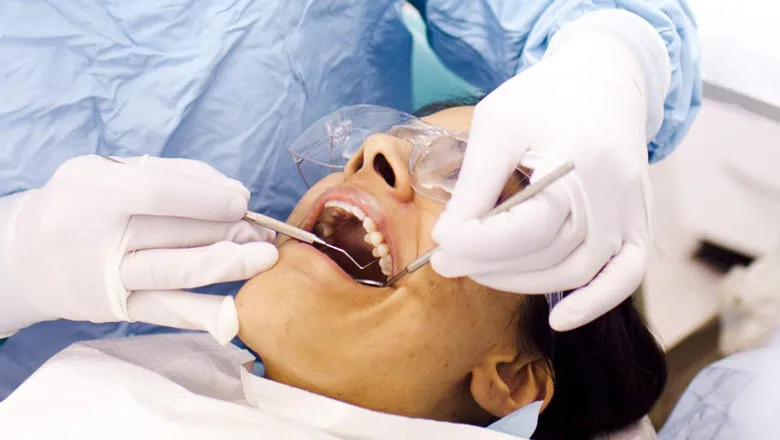
Professor J. Tim Newton
Dean of Research Culture
- Professor of Psychology as Applied to Dentistry
- Honorary Consultant Health Psychologist
Research interests
- Dentistry
- Psychiatry, psychology and neuroscience
Biography
Tim Newton is Dean of Research Culture, working within the Research Management and Innovation Directorate to create a culture where people thrive and are valued, a place where great research practice is our everyday norm, and an environment where innovation flourishes, impactful discoveries unfold and everybody feels part of a richly diverse community. His role encompasses working with teams dedicated to research governance, research integrity, research ethics and research culture.
Tim maintains an academic role as Professor of Psychology as Applied to Dentistry at King’s College London Faculty of Dentistry, Oral & Craniofacial Sciences. He also holds Honorary Consultant Health Psychologist positions with Guy’s & St Thomas’ NHS Foundation Trust and The Office of the Chief Dental Officer.
In 2016 Tim was awarded the Behavioural, Epidemiological and Health Services Research Distinguished Scientist Award by the International Association of Dental Research. He is an honorary member of the British Orthodontic Society and holds Honorary Fellowships with the Royal College of Surgeons (Edinburgh) and the College of General Dentistry.
A founder member of the King’s Dental Institute Health Psychology Service, Tim allocates 25% of his week to clinical commitments, providing Cognitive Behaviour Therapy to support individuals with dental phobia to overcome their fear, and support for individual’s facing challenging dental procedures. The wider service provides psychological support for individuals with chronic oro-facial pain as well as other long term oral conditions.
Tim’s research interests lie particularly in theory-based interventions to change behaviour in relation to oral health and the management of dental anxiety and phobia. His research in the area of behaviour change focuses largely on the design, implementation and testing of brief interventions to enhance the oral health behaviour of patients attending primary dental care settings, in particular the feasibility and acceptability of such interventions.
Research

Cariology & Operative Dentistry
Cariology & MI Operative Dentistry Research Programme

Psychology in Dentistry
Psychology in Dentistry: We are a collaborative team involved in research and service provision applying psychology to the dental setting.

Centre for Oral, Clinical & Translational Sciences
From toothwear to oral pathology, from facial reconstruction to oral surgery, there's one thing that all our research shares: an underlying desire to make a difference to patients and bring benefits to society. We’re particularly strong in prosthodontics and endodontics research, and our work in this field feeds into our postgraduate programmes.
News
Professor Tim Newton receives Honorary Fellowship from the Royal College of Surgeons of Edinburgh
Tim Newton, Professor of Psychology as Applied to Dentistry and Dean of Research Culture at King’s, has been awarded an Honorary Fellowship in Dental Surgery...

Winners announced at inaugural King's Engaged Research Awards ceremony
The inaugural King’s Engaged Research Awards ceremony brought together staff, students and community partners to celebrate public and community engagement...

Using Cognitive Behaviour Therapy for dental phobia
The King’s and GSTT Dental Psychology Service provide an update to their successful training service.

Chewing sugar-free gum could help reduce tooth decay
New evidence shows relationship and effect on slowing dental caries

Do dentists treat people with extreme dental fear (phobia) differently?
In a study recently published in the British Dental Journal, researchers from King’s College London set out to test whether the presence of dental phobia...

Dental patients with phobia and anxiety may receive reduced treatment
A study from the King’s College London Dental Institute has found that dental patients suffering phobias, who constitute over 11% of the population[i], not...

Events

Research Culture symposium 2025
Drawing on the strength of the sector at King's first annual Research Culture Symposium.
Please note: this event has passed.
Features
Helping patients face their fears
How cognitive behavioural therapy (CBT) is helping many people overcome their fear of visiting the dentist
Spotlight
Helping patients face their fears
How cognitive behavioural therapy (CBT) is helping many people overcome their fear of visiting the dentist
Research

Cariology & Operative Dentistry
Cariology & MI Operative Dentistry Research Programme

Psychology in Dentistry
Psychology in Dentistry: We are a collaborative team involved in research and service provision applying psychology to the dental setting.

Centre for Oral, Clinical & Translational Sciences
From toothwear to oral pathology, from facial reconstruction to oral surgery, there's one thing that all our research shares: an underlying desire to make a difference to patients and bring benefits to society. We’re particularly strong in prosthodontics and endodontics research, and our work in this field feeds into our postgraduate programmes.
News
Professor Tim Newton receives Honorary Fellowship from the Royal College of Surgeons of Edinburgh
Tim Newton, Professor of Psychology as Applied to Dentistry and Dean of Research Culture at King’s, has been awarded an Honorary Fellowship in Dental Surgery...

Winners announced at inaugural King's Engaged Research Awards ceremony
The inaugural King’s Engaged Research Awards ceremony brought together staff, students and community partners to celebrate public and community engagement...

Using Cognitive Behaviour Therapy for dental phobia
The King’s and GSTT Dental Psychology Service provide an update to their successful training service.

Chewing sugar-free gum could help reduce tooth decay
New evidence shows relationship and effect on slowing dental caries

Do dentists treat people with extreme dental fear (phobia) differently?
In a study recently published in the British Dental Journal, researchers from King’s College London set out to test whether the presence of dental phobia...

Dental patients with phobia and anxiety may receive reduced treatment
A study from the King’s College London Dental Institute has found that dental patients suffering phobias, who constitute over 11% of the population[i], not...

Events

Research Culture symposium 2025
Drawing on the strength of the sector at King's first annual Research Culture Symposium.
Please note: this event has passed.
Features
Helping patients face their fears
How cognitive behavioural therapy (CBT) is helping many people overcome their fear of visiting the dentist
Spotlight
Helping patients face their fears
How cognitive behavioural therapy (CBT) is helping many people overcome their fear of visiting the dentist
